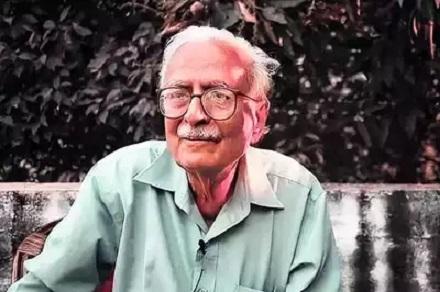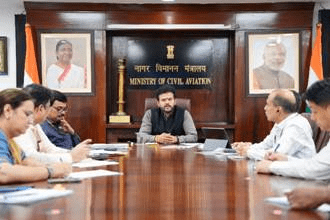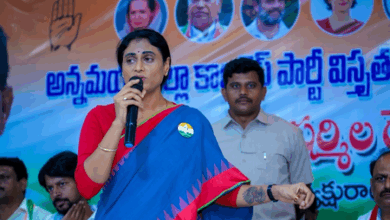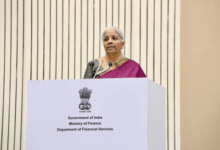
Vinod Kumar Shukla, a prominent Hindi writer, short story writer, poet, essayist and one of the contemporary writers from Chhattisgarh, has been selected as the 59th recipient of India’s highest literary award, the Jnanpith Award, for his distinguished contribution to literature, creativity and distinctive writing style. Vinod Kumar Shukla became the first writer from the state of Chhattisgarh to receive this highest literary award. Shukla is the 12th Hindi writer to be selected for this award.
Vinod Kumar Shukla, on being selected for the Jnanpith Award, said, “This is a big award and this award also recognizes my responsibility. Shukla expressed his happiness that he did not expect to receive such recognition. “I have seen a lot in my life, heard a lot, experienced a lot. But I was able to write. I was able to write only a little. If you think about how much I have to write, it seems that there is still a lot left. Even if I want to complete the rest of my work as long as I live, I may not be able to complete it! I am a little sad to write so soon,” said the 88-year-old.
This recognition was described as a responsibility.
*Degree in Agriculture:
Shukla was born on 1 January 1937 in Rajnandgaon, Chhattisgarh. He completed his M.Sc. in Agriculture from Jawaharlal Nehru Krishi Vishwa Vidyalayam, Jabalpur. He then joined the College of Agriculture, Raipur as a lecturer. He was greatly inspired by the poet Muktibodh. He was then working as a Hindi lecturer at Digvijay College, Rajnandgaon.
*Experimental works:
His first collection of poetry “Laghbhag Jai Hind” was published in 1971. “Wa Aadmi Chala Gaya Naya Garam Kot Pehankar Vichar Ki Tarah” was his second collection of poetry. Naukar Ki Kameez (The Servant’s Shirt) was his first novel. “Khilega To Dekhenge”, “Deewar Mein Ek Khidki”, are widely acclaimed as the best Hindi novels. Other poetry collections include Ped Par Kamra (Room on a Tree), Sab Kuch Hona Bacha Rahega and short story collections “Mahavidyalaya”. “Aakash Dhari Ko Khatakta Hai” and “Kavitha Se Lambi Kavita” are some of his poems.
Shukla has also written books for children. He has been engaged in literary writing for nearly fifty years. He is a pioneer of new experimental writing in modern Hindi literature. His poems and stories capture the nuances of everyday life and heartily express the emotions of the common man and the complexities of society. Vinod Kumar Shukla’s poems have been widely translated. In 2015, Delhi-based writer Akhil Katyal Shukla translated ‘Hatasha Se Ek Vikti Bait Gaya’ into English.
*Awards:
Deewar Mein Ek Khirki Rahti Thi (The Window Lives in the Wall) won the Sahitya Akademi Award for Best Hindi Work in 1999. The novel was adapted into a stage play by playwright Mohan Maharshi. He has received several prestigious awards and accolades, including the Gajanan Madhav Muktibodh Fellowship and the Raja Award. His works include Naukar Ki Kameez, which was adapted into a film of the same name by Mani Kaul.
*Highest Award:
The Jnanpith Award is the highest literary award in India. It is presented by the Bharatiya Jnanpith, founded by the Sahu Jain family, founders of the Times of India newspaper. The award consists of a bronze statue of Vagdevi, a citation, and a cash prize of eleven lakh rupees. Established in 1964, the award was presented to Malayalam writer G. Shankara Kurup in 1965 for his collection of poems “Odakkujhal (The Bamboo Flute)”. In 1976, Bengali writer Ashapurna Devi was the first woman to win the award.
In 2019, Amitav Ghosh became the first English writer to receive the award. Indian citizens writing in any of the official languages of India are eligible for the award. Since 1982, the award has been given for an author’s overall contribution to literature, rather than for a specific work. Once awarded in a language, it is not eligible for the award for the next two years. The award is given only to Indian writers who write in English, among the Indian languages included in the Eighth Schedule of the Constitution of India. There is no posthumous preference.











